-
What Is Dual Stream Recycling?
When you are setting up a recycling program , you may encounter the term dual stream recycling. Dual stream and single stream recycling are two different methods for sorting recycled waste before it is sent to the processing facility. If you want ensure that your recycling methods are as sustainable as possible, you may want to consider setting up dual stream recycling services. A company that offers recycling bins in Atlanta can provide you with the containers that you need to sort your recyclables correctly.
One of the key characteristics of dual stream recycling is that this type of recycling program requires consumers to sort their paper, glass, and plastic recycling before it is picked up for processing. By sorting your recyclables by type, you can help to cut down on recycling waste and increase the amount of recoverable material that can be sourced out of your recyclables. While single stream recycling may seem more convenient, dual stream methods can be more sustainable in the long run.
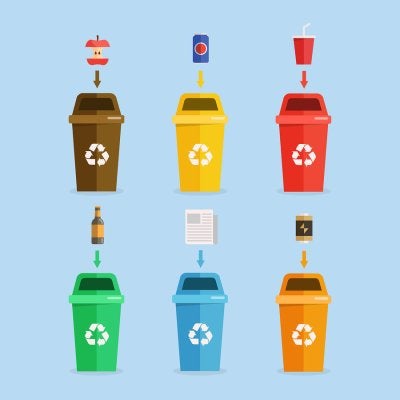
-
Ideas for Making Your School a Greener Place
Are you looking for ways to cut down on your school’s waste near Atlanta? If so, then the good news is that there are many ways in which schools can improve their waste management practices and be more environmentally friendly. Continue reading for tips on making your school a greener place.
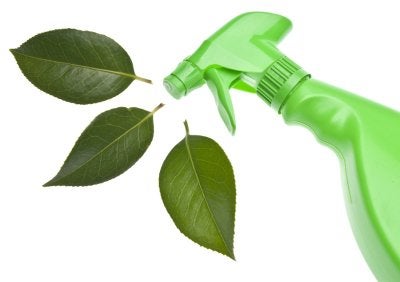
Conduct an Audit
You already know that you want to make your school more environmentally friendly, but knowing where to start can be overwhelming and confusing. For this reason, it’s a great idea to start with energy and waste audits. You can conduct these audits yourself or work with a professional company. The audit process will give insight into your school’s biggest problem areas.
Speak with Staff
There is a good chance that you’re not the only one who wants to work for a greener school. For this reason, you can benefit from speaking with teachers, custodians, and other staff members to learn their opinions regarding potential areas for improvement and which green initiatives they would be interested in participating in.
Include the Kids
If you work with children, then you already know how enthusiastic and outspoken they can be when it comes to learning about and protecting the environment. Include students in the process of making your school greener by asking for their input and letting them help with or even lead programs for educating others about recycling facts, setting up recycling bins, planting school gardens, and starting green clubs.
Put up Signage
Your school may already be greener than you would guess. It’s common for institutions to make use of energy-efficient and environmentally friendly products and practices, and it’s also common for only a handful of people to be aware of these green initiatives. Learn what your school already does to be green and spread the word through signs. Also, post educational signage that informs others of any new green initiatives that your school adopts and what they can do to help.
-
Where Is Formaldehyde Found?
When it comes to properly managing industrial waste near Atlanta , knowing where to find specific materials is essential. Formaldehyde, for example, is used in a broad range of products, and exposure to this chemical can cause irritation of the eyes, nose, skin, and throat. Also, high levels of formaldehyde exposure may cause some cancers. For these reasons, understanding where you might encounter this chemical is an important part of the waste management process.
Formaldehyde can be found in resins that are used in the manufacturing of composite wood products such as fiberboard, particleboard, and hardwood plywood. Insulation, building materials, pesticides, and fertilizers can also contain this chemical, along with products like permanent press fabrics, glues, coatings, paints, paper products, finishes, and lacquers. Waste from some cosmetics, medicines, and consumer products like fabric softeners and dishwashing liquids may contain preservatives that use formaldehyde. Finally, formaldehyde is found in cigarette smoke and emissions from unventilated fuel-burning appliances such as kerosene space heaters and gas stoves. Understanding these facts about where to find formaldehyde can improve your company’s waste management and trash removal practices.
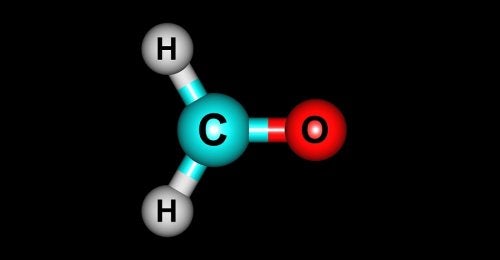
-
Exploring the Life Cycle of Electronics
Electronics play a critical role in the daily life of the average American. If you’re like many people who recycle near Atlanta, then you may have questions about the process of electronics or e-waste recycling. Read on for some insight into the life cycle of electronics and why your used devices should be recycled and not tossed into dumpsters.
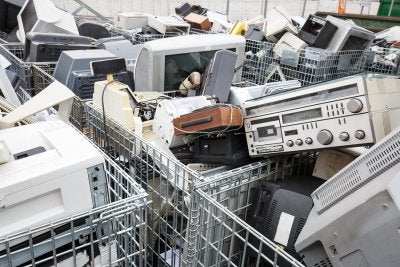
Mining
Materials like copper, platinum, gold, and iron are mined from the earth, refined, and then used to create a broad range of the electronics that people use every day. The process of refining raw materials produces greenhouse gas emissions and requires a significant amount of energy. For these reasons, recycling the materials used to make electronics conserves energy and benefits the environment.
Manufacturing
Next, the refined materials are used in the manufacturing of electronics. Some manufacturers also use recycled materials during this process. Then, the electronics are sold and used.
Purchasing
When purchasing electronics, it’s ideal to choose those that are designed with environmentally friendly features. Also, select those products that are made with durability, longevity, and recyclability in mind if you want to reduce your environmental impact.
Collecting
Ideally, all used electronics would be disposed of through a certified electronics recycler. This step can be done in a variety of ways. For example, electronics retailers and community centers often have e-waste recycling bins. Also, some companies offer warranty and mail-in programs that reward consumers for sending in their old devices. These used products can be refurbished or recycled, cutting down on the need for mining and processing new materials. Unfortunately, some used electronics are thrown in waste bins and disposed of in landfills. Once this happens, the valuable materials used to make the electronics cannot be recovered and recycled.
Recycling
Those electronics that do make it to an e-waste recycling facility are dismantled before being sorted into categories of valuable and recyclable materials, such as aluminum, gold, glass, and copper. Then, the materials return to the supply chain where they can be used to create new electronics and other products.
-
Learn More About Your Everyday Products with This App
There are tons of ways you can crack down on waste near Atlanta , and waste disposal methods aren’t the only ones. You can also practice waste management by only purchasing the products that you need. Learn more about your everyday products with this app.
Humans generate an incredible amount of waste, and much of this waste comes from unused products that were thrown away. Thanks to GoodGuide , you can be sure to choose only high quality products that you will use to the fullest. The app offers ratings for food products, informs you about the health hazards that are associated with certain cleaning products, and educates consumers about nutrition. If consumers are able to make more informed choices about the products that they buy, manufacturers may be encouraged to make better quality products. The GoodGuide app is available for the iPhone, iPad, and iPod Touch, and its information is credible and scientific.
https://itunes.apple.com/us/app/goodguide/id294447660?mt=8
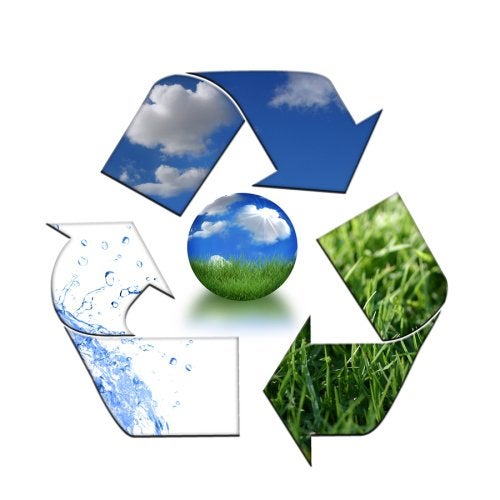
-
Which Industries Can Benefit from a Compactor or Baler?
Recycling serving Atlanta might be one of the first things to come to mind when you think about how you can reduce your business’ carbon footprint , but there are a few other tricks that can be helpful as well. Compactors and balers can help with waste disposal in all kinds of different industries and in several different ways. Supermarkets, department stores, and shopping malls all generate significant amounts of waste, and managing that waste should be a deliberate process. Feel free to keep reading for a look at a few industries that can benefit with a compactor or baler.

Supermarkets
All the food that you see on the shelves at your local grocery store had to get there somehow. The produce, dairy, and packaged products all come in large cardboard boxes. Even smaller grocery stores can go through a tremendous amount of cardboard every day, and prompt waste management can prevent all of the excess from building up and taking up space. A compactor or baler can crush your cardboard boxes down so that they take up less physical space and can be disposed of more easily.
Department Stores
Much like supermarkets, department stores go through pounds and pounds of waste every day. Some department stores even have grocery stores included within them, which means they deal with all of that waste plus much more. When you’re dealing with this much waste, you have to consider how often you’ll need to dispose of it. Compactors and balers crush down the waste so you don’t have to make as many trips in disposing of it. This saves the business time, effort, and money.
Shopping Malls
Since shopping malls tend to take up a bigger space than supermarkets or department stores, it’s helpful for them to have more than one compactor or baler. Your local shopping mall will enjoy all the same waste management benefits that supermarkets and department stores will when they choose a compactor or baler. You can also choose between renting or outright purchasing your waste management equipment, so consider your needs and your budget.
-
Look at These Innovations in Sustainability
Sustainability is an important topic that guides the manufacturing and design strategies of many different businesses. Today, companies are using innovative strategies to turn their recycling or commercial waste into brand new products and designs. When you rent recycling bins in Atlanta , you may want to ask your waste management company about some of the latest trends in sustainability. Setting up a recycling program is one great way to improve the sustainability of your company. Read on to take a closer look at some of today’s most interesting innovations in sustainability.
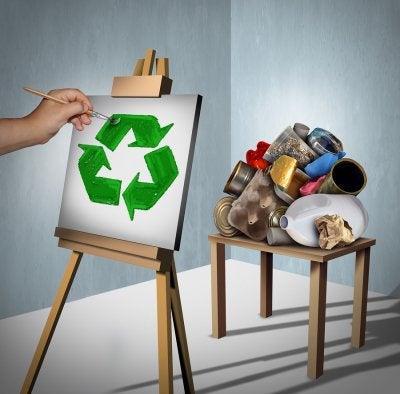
QMilk
The inventors of QMilk have created an extraordinary method for recycling and repurposing spoiled milk. QMilk relies on innovative processing methods to turn rotten milk into a textile that resembles cotton. During the QMilk recycling process, spoiled milk is sanitized and strung into biodegradable fibers. QMilk can be used for many different purposes, including clothing, furniture upholstery, and linens for the home.
Geckskin
Geckos and other lizards possess the amazing ability to walk along vertical walls. The team behind Geckskin used the footpads of lizards as inspiration for a new type of adhesive. Products that contain Geckskin can be securely adhered to solid surfaces. When the Geckskin is removed, it leaves no damage or residue behind.
Barktex
For many years, researchers have been looking for sustainable alternatives to conventional leather. With the introduction of Barktex, the leather industry has been completely revolutionized. Barktex uses recycled tree bark in order to create a material that is remarkably similar to leather. The creators of Barktex also ensured that their material was created using environmentally friendly manufacturing methods.
Ambercycle
Ambercycle is a brand new method for recycling plastics. This recycling technique uses special enzymes to completely break up and ferment plastic items. Once plastic has been fermented, it can be used for a variety of manufacturing applications. The inventors of Ambercycle hope to free up space in landfills and encourage more people to recycle their plastic waste, rather than throwing it in the trash.
-
See How This Busy Restaurant Reduces Food Waste
Proper waste management is essential for restaurants and other businesses in the food industry. When you watch this video from CBS This Morning, you will learn about some amazing waste management techniques that are used by a buffet restaurant in Las Vegas. Rather than throwing their excess food in the trash, one Las Vegas restaurant transforms its food waste into livestock feed. A company that specializes in recycling serving Atlanta can help you create a waste disposal strategy for your restaurant .
If your restaurant is in need of a new dumpster or other disposal tools, be sure to get in touch with a team of professionals. By taking the time to create an effective waste management strategy for your restaurant, you can help you cut back on the amount of food waste that you send to the landfill.
-
Introducing Green Initiatives to Your Office
A green initiative is a program with the primary purpose of reducing greenhouse gas emissions. If you’re hoping to make your office more environmentally friendly and improve how it handles waste management in Atlanta, then there are several steps that you can take.
First, implementing a recycling program is an excellent green initiative to introduce to your office. Start by contacting your local waste management center about beginning a recycling program and placing recycling bins for paper, glass, plastic, and metal in your office. Next, educate your team about what should or shouldn’t go in the bins and the benefits of recycling.
Also, there are several simple green initiatives that you can introduce to your office. For example, having plants like palms, ferns, and orchids can improve the aesthetics and morale of your office while at the same time offsetting CO2 emissions and volatile organic compounds (VOCs). Finally, installing energy-efficient lighting, turning off electronics that aren’t in use, and reusing paper are all excellent ways to promote a greener office.
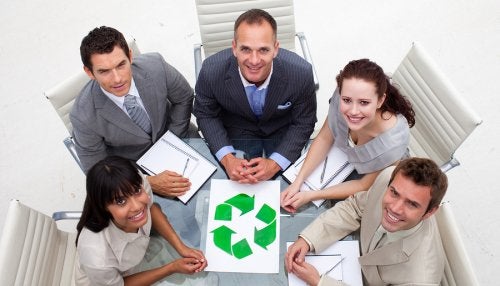
-
A Look at Industrial Solid Waste
Are you looking for ways to reduce your business’s waste near Atlanta ? If so, then you might benefit from knowing more about different types of industrial waste. Read on for information about industrial solid waste and what you can do to reduce it.
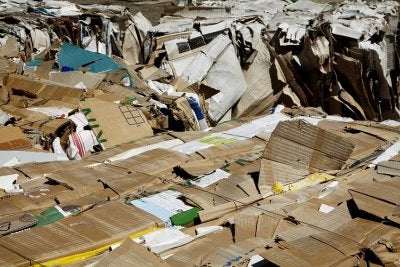
Defining Industrial Solid Waste
Industrial solid waste is that which is generated by businesses during manufacturing or industrial processes. Also, it can be produced as a separate waste source from a non-manufacturing activity. Any business, service, or commercial establishment that makes use of industrial or manufacturing processes probably produces industrial solid waste. By law, industrial solid waste is defined as a non-household and non-hazardous waste that requires evaluation to determine the proper waste disposal method.
Identifying Industrial Solid Waste
While the possibilities for industrial solid waste are nearly endless, there are some types that are commonly generated. Some of the most common examples of industrial solid waste include non-recyclable glass, oil-contaminated wastes, paint residue, tires, and electrical components. Additional examples would be food waste, animal remains and carcasses, empty chemical containers, infectious wastes, and confidential documents.
Evaluating Industrial Solid Waste
When it comes to waste management, the generator of the industrial solid waste is held responsible for evaluating the waste and proving that it is non-hazardous through methods like laboratory testing or documenting the waste’s characteristics. Warehouses, food processing facilities, automotive manufacturers, and distribution centers are some examples of sites that might produce industrial solid waste.
Reducing Industrial Solid Waste
As many business owners are glad to learn, there are several ways in which companies can decrease the amount of industrial solid waste that they reduce. First, upgrade to technology and production techniques that lessen the amount of waste created. Next, maintain your equipment and ensure that your team is properly trained. Finally, initiate an industrial waste recycling program. By reducing the amount of industrial solid waste produced by your business, you can save on waste management costs and reduce your company’s environmental impact.
RECENT POSTS
categories
- Uncategorized
- Waste Management Atlanta
- Waste Disposal and Recycling
- Hazardous Waste Disposal
- Chemical waste removal
- solid waste removal
- R3 Program
- Sustainable Organizations
- Sustainable Waste Removal
- Commercial Waste Removal
- Materials Management Program
- Dumpster Rental
- Roll Off Dumpsters
- Construction Site Waste Removal
- Sustainability
- Recycling in Atlanta
- Industrial Recycling
- Industrial Waste Removal Services
- Southern Waste & Recycling
- Waste Removal Atlanta
- Waste Specialists
- Atlanta
- Infographic
- Front Load Dumpsters
- Rear Load Dumpsters
- Reusable Electronics
- Dump Truck Atlanta
- Recyclable Electronics
- Trash Compactors
- Recycling
- Recycling Program
- Office Recycling
- Metal Recycle
- Electronic Waste
